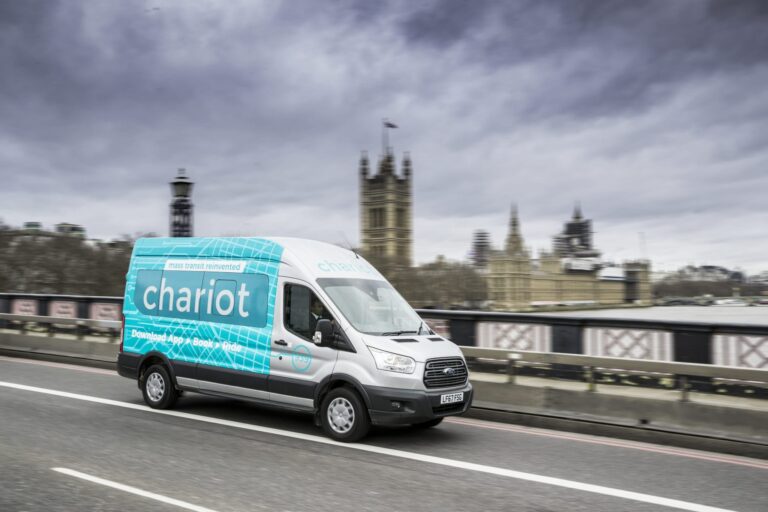Ford has launched its smart mobility service, Chariot, in London. This ride-sharing service intends to help ease congestion and tackle air quality issues by improving daily commutes for those in areas underserved by public transport.
The shuttle service will on weekdays during rush hour and travel along bus lanes. It is designed to carry up to 14 people from their homes to connect them with transit hubs and underground stations. Sarah Jayne Williams, director, Ford Smart Mobility, Europe explained that “As well-served as London is by public transport, the daily commute can still be a bit of a slog for some in the city. Chariot is one way of providing residents with reliable, safe and affordable transportation.”
In London, 12 fuel-efficient shuttles take passengers along 4 routes. The routes are determined by detailed analysis of urban area and will help to fill transportation gaps between several rapidly growing neighbourhoods and six major transport hubs in London. Chariot will service those living in the Battersea Power Station mixed-use neighbourhood and the Nine Elms area, Riverside Quarter complex in Wandsworth, Belvedere and Nuxley Village and Royal Borough of Greenwich.
“Cities globally are dealing with increased congestion and environmental issues,” said Marcy Klevorn, president, Ford Mobility. “Ford is helping to alleviate these challenges by developing mobility solutions – such as Chariot – that are finely tuned to the unique challenges of commuters in different locations, addressing gaps in transport systems and completing their travel with first- and last-mile additions.”
Up to six shuttles per hour will run at peak times and can be accessed via a smartphone app. This allows users to search for nearby routes and closest available transport hub addresses, after which the closest convenient pick up point will be identified. Seats can be booked and tracked in real-time.
Chariot was originally launched in the US and currently services 5 cities: San Francisco, New York, Seattle, Columbus, and Austin. Chariot runs 108 routes daily collectively and intends to expand to include more cities – in the U.S. as well as internationally.





